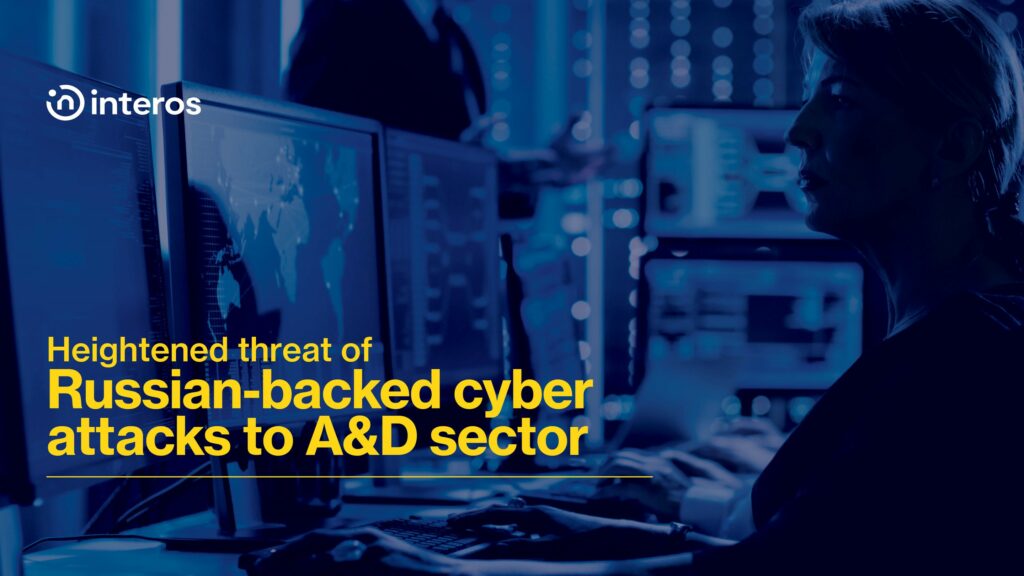Over the past few days, we’ve been in close contact with a range of customers and businesses who are trying to determine the best path forward as the conflict escalates in Ukraine and as more multinational companies decide to dissolve, cut back or suspend operations in Russia.
As we engage these leaders and provide technical and in-kind support to help vulnerable and displaced communities devastated by this invasion, I wanted to take a moment and share some of the challenges facing our commercial and government partners at the moment and the counsel we are providing. Our hope is that some of this is helpful as you think through your own considerations.
CEOs and other prominent business leaders are confronting tough questions about their commercial connections to Russia. These questions can be difficult to answer given the complex interdependencies of today’s global supply chains. Consumers and employees want to know whether business relationships with the Russian government or Russian companies will be discontinued. Many more want to better understand how the invasion has impacted companies or their suppliers.
Large companies quickly curtail Russian operations
CEOs must be prepared to to answer these questions and some already have taken action. BP is expecting to take a $25 billion hit after its decision to cut ties with the Russian state-owned energy firm, Rosneft. Twitter has ceased selling ads in Russia and has added special labeling to tweets sharing Russian state-produced media. YouTube blocked Russian channels from earning ad dollars. Several prominent law firms and lobbyists have dropped Russian clients. Meta has established a special operations center and is prohibiting Russian state media from running ads or monetizing on its platform anywhere in the world. And just within the last 24 hours we’ve seen Delta, DHL, UPS, FedEx, Dell, Maersk and Shell announce significant measures to curtail operations in Russia.
While not all companies can move swiftly, CEOs need to communicate their organizations’ status and intentions with all critical stakeholders. This includes identifying business partners in Russia and employees from Russia who perform work delivered abroad. It also requires a clear rationale for firms who are not immediately severing ties with Russian commercial connections.
According to a recent LumApps/CMS poll, 76% of employees surveyed said they want to work for companies with a strong social impact. Employees will be carefully watching the actions their companies and organizations take. Business leaders should over-communicate to employees all efforts in the name of transparency.
Key questions you need answers to:
As the war in Ukraine continues, business leaders should also answer the following questions to ensure operational resilience, and maintain trust with their employees and customers:
- Do you have long-term plans to accommodate impacted employees in Russia and Ukraine?
- Have you developed a plan to work with relief organizations in Ukraine?
- Do you have visibility into your supply chains beyond first- and second-tier suppliers?
- Have you evaluated required levels of inventory and labor in the short to medium term?
- Are you actively discussing business continuity plans with key suppliers?
- Do you have contingency plans in place to switch to, or qualify, alternative sources for essential products and services?
- Are you prepared for cyber attacks?
- Are you in close contact with your people and suppliers in other parts of Eastern Europe?
- Are you tracking new sanctions and export controls from various markets?
- Are you in contact with your elected officials in the U.S. and Europe as conditions continue to evolve?
- Has your organization developed an integrated communication plan that includes timely updates to employees, customers, suppliers, investors, government officials and media?
With proper analysis, planning, and unyielding compassion for every person and business caught up in this tragedy, it is possible to mitigate significant risk, ensure operational resilience, and avoid supply chain disruption.
Interos will continue to update our blog with updated supply chain data and insights as the events in Ukraine evolve. Please check back frequently and reach out to help provide visibility into your supply chain to ensure all business relationships meet company standards. Most important, keep the people of Ukraine in your thoughts. The world can and must help all nations find a path to peace.


